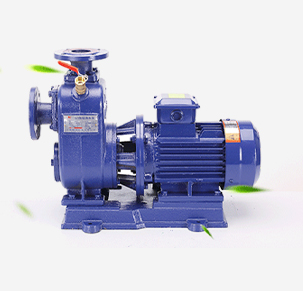German
- Afrikaans
- Albanian
- Amharic
- Arabic
- Armenian
- Azerbaijani
- Basque
- Belarusian
- Bengali
- Bosnian
- Bulgarian
- Catalan
- Cebuano
- Corsican
- Croatian
- Czech
- Danish
- Dutch
- English
- Esperanto
- Estonian
- Finnish
- French
- Frisian
- Galician
- Georgian
- German
- Greek
- Gujarati
- Haitian Creole
- hausa
- hawaiian
- Hebrew
- Hindi
- Miao
- Hungarian
- Icelandic
- igbo
- Indonesian
- irish
- Italian
- Japanese
- Javanese
- Kannada
- kazakh
- Khmer
- Rwandese
- Korean
- Kurdish
- Kyrgyz
- Lao
- Latin
- Latvian
- Lithuanian
- Luxembourgish
- Macedonian
- Malgashi
- Malay
- Malayalam
- Maltese
- Maori
- Marathi
- Mongolian
- Myanmar
- Nepali
- Norwegian
- Norwegian
- Occitan
- Pashto
- Persian
- Polish
- Portuguese
- Punjabi
- Romanian
- Russian
- Samoan
- Scottish Gaelic
- Serbian
- Sesotho
- Shona
- Sindhi
- Sinhala
- Slovak
- Slovenian
- Somali
- Spanish
- Sundanese
- Swahili
- Swedish
- Tagalog
- Tajik
- Tamil
- Tatar
- Telugu
- Thai
- Turkish
- Turkmen
- Ukrainian
- Urdu
- Uighur
- Uzbek
- Vietnamese
- Welsh
- Bantu
- Yiddish
- Yoruba
- Zulu
Telephone: +86 13120555503
Email: frank@cypump.com
Nov . 05, 2024 13:27 Back to list
septic pump tanks
Understanding Septic Pump Tanks Essential Components of Wastewater Management
Septic systems play a crucial role in managing wastewater for homes and businesses that are not connected to a public sewage system. One of the key components of these systems is the septic pump tank. Understanding how septic pump tanks function and their importance can help homeowners and property managers maintain their wastewater systems effectively.
A septic pump tank is designed to manage the flow of wastewater from the septic tank to the drain field. When a conventional gravity system might not be feasible due to topography, a pump tank becomes essential. It collects the effluent from the septic tank and utilizes a pump to transport it to the dispersal area, ensuring that the wastewater is released at the proper elevation and distance from the home.
The pump tank is typically made of durable materials such as concrete or polyethylene, ensuring longevity and resistance to corrosion. Inside the tank, there are float switches that regulate the pump's operation. When the wastewater reaches a predetermined level, the float switch activates the pump, which then pushes the effluent into the drain field. This mechanism helps prevent clogging and ensures that the wastewater is distributed evenly, minimizing the risk of system failure.
septic pump tanks

Regular maintenance is crucial for septic pump tanks to function efficiently. Homeowners should schedule periodic inspections to ensure that the pump is in good working order, the floats are functioning correctly, and there are no blockages in the system. Additionally, it is essential to avoid flushing non-biodegradable items down the toilet or pouring harmful chemicals down the drain, as these can lead to pump failure or damage to the entire septic system.
Another important factor to consider is the size of the pump tank. A tank that is too small may lead to overflow and system failure, while one that is too large can lead to inefficiencies. It’s vital to assess the household’s wastewater production and choose a tank that adequately meets those needs.
To conclude, septic pump tanks are vital for effective wastewater management, especially in areas without access to public sewage systems. Understanding their function and the importance of maintenance can help property owners avoid costly repairs and ensure their septic systems operate smoothly. By taking proactive steps, such as regular inspections and proper waste disposal practices, homeowners can prolong the lifespan of their septic systems and maintain a healthy and sustainable environment.
-
ISG Series Pipeline Pump - Chi Yuan Pumps | Energy Efficiency&Compact Design
NewsAug.03,2025
-
ISG Series Vertical Pipeline Pump - Chi Yuan Pumps Co., LTD.|High Efficiency, Low Noise, Durable
NewsAug.02,2025
-
ISG Series Vertical Pipeline Pump - Chi Yuan Pumps | High Efficiency, Low Noise
NewsAug.02,2025
-
ISG Series Vertical Pipeline Pump- Chi Yuan Pumps Co., LTD.|High Efficiency&Compact Design
NewsAug.02,2025
-
Heavy-Duty Mining Sludge Pumps - Wear-Resistant Slurry Handling
NewsAug.02,2025
-
Horizontal Split Case Pump with GPT-4 Turbo | High Efficiency
NewsAug.01,2025










